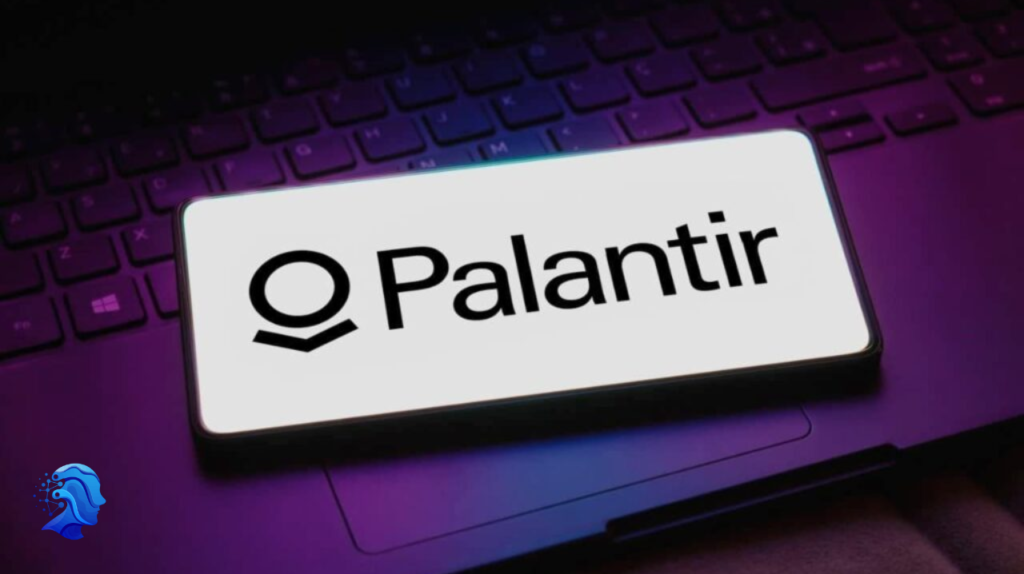Palantir Technologies, co-founded by billionaire Peter Thiel, is making headlines as Storebrand Asset Management, one of the largest investors in the Nordic region, has divested its holdings in the data analytics firm. This decision stems from concerns regarding Palantir’s business dealings with Israel, specifically its involvement in the ongoing conflict in the occupied Palestinian territories. The move highlights companies’ growing scrutiny regarding their ethical practices and human rights implications in conflict zones.
The Decision to Divest
Storebrand Asset Management disclosed its decision to exclude Palantir from its investments, which amounted to approximately 262 million crowns (around $24 million). The asset manager cited concerns that Palantir’s operations could violate international humanitarian law and human rights. The company manages around 1 trillion crowns (approximately $91.53 billion) in assets, indicating that this divestment reflects significant ethical considerations at the institutional investment level.
The firm stated, “Palantir Technologies Inc. has been excluded from our investments due to its sales of products and services to Israel for use in occupied Palestinian territories.” This statement underscores the growing trend among investors to align their portfolios with ethical considerations and social responsibility.
Background on Palantir’s Operations
Palantir Technologies primarily provides data analytics solutions, including artificial intelligence models, to military and government entities. The company has gained notoriety for its partnerships with various defence agencies, including its recent agreements with Israel to provide technology to support military operations in the ongoing conflict in Gaza.
Palantir CEO Alex Karp has publicly defended the company’s work with Israel, asserting that he is proud of these partnerships, especially in the wake of the Hamas attacks in October last year. He acknowledged the potential backlash, admitting that Palantir had lost employees due to its stance and anticipated further losses due to his public support for Israel.
Ethical Concerns and International Scrutiny
Storebrand’s decision is not isolated; it follows a broader trend of increasing scrutiny regarding businesses operating in conflict zones. In March, Norway’s government issued recommendations cautioning businesses against engaging in economic activities related to Israeli settlements in the Palestinian territories. This recommendation has set the stage for further ethical evaluations of companies like Palantir.
The International Court of Justice (ICJ), the United Nations’ principal judicial organ, declared in July that Israel’s occupation of Palestinian territories, including settlements, is illegal. Israel’s foreign ministry has vehemently rejected this interpretation, asserting that a political resolution can only be reached through negotiations. Nonetheless, the ICJ’s ruling has intensified calls for corporate accountability and ethical investment practices.
The Role of A.I. in Surveillance and Policing
Storebrand’s analysis suggests that Palantir’s products and services include AI-based predictive policing systems, which are reportedly used to facilitate the surveillance of Palestinians in the West Bank and Gaza. The firm claimed that Palantir’s technologies help identify individuals likely to commit “lone wolf terrorist” attacks, enabling preemptive arrests.
This raises significant ethical questions about the role of technology in perpetuating conflict and human rights abuses. According to reports from the United Nations, Israeli authorities have a troubling history of detaining Palestinians without charge or trial, contributing to accusations of systemic oppression in the occupied territories.
A U.N. Special Rapporteur noted in a 2023 report that the occupied Palestinian territory has effectively been transformed into a “constantly surveilled open-air prison.” Such characterizations amplify the concerns surrounding the use of advanced technology in the service of military and governmental objectives, mainly when these activities involve human rights violations.
Reactions to storebrand’s Decision
Storebrand’s exit from its investment in Palantir has elicited varied reactions. Proponents of ethical investing applaud the move as a necessary stance against complicity in human rights abuses. The divestment signals to other investors that ethical considerations must take precedence, especially in industries associated with military and surveillance technologies.
Conversely, critics may argue that divesting from companies like Palantir could impede technological innovation in the defence and security sectors. They might contend that advanced technologies can also enhance security measures and operational effectiveness when used responsibly.
Broader Implications for Investors
Storebrand’s decision reflects the evolving landscape of institutional investing. As investors increasingly prioritize Environmental, Social, and Governance (ESG) factors, companies operating in contentious regions or industries may be under heightened scrutiny. This trend could lead to significant shifts in businesses engaging with ethical issues, particularly human rights.
The growing focus on responsible investing means that firms must be prepared to address concerns regarding their operations and affiliations. Failure to do so could result in financial repercussions, as seen with Storebrand’s divestment.
Future Outlook for Palantir
The broader market’s reaction to its business dealings may influence Palantir’s future. As ethical investing gains momentum, companies must navigate complex socio-political landscapes while maintaining profitability. The backlash from institutional investors like Storebrand could prompt Palantir to reassess its strategic partnerships and operational practices.
The company has maintained a strong stance regarding its mission to provide advanced data analytics tools for national security and defence. Still, the ethical implications of its work in conflict zones will continue to raise questions. It remains to be seen how public perception and investor sentiment will evolve in response to ongoing developments in the Israeli-Palestinian conflict.
Conclusion
The divestment by Storebrand Asset Management underscores the growing importance of ethical considerations in investment decisions, particularly in industries tied to defence and surveillance technologies. As Palantir Technologies continues its operations in contentious regions, it faces increasing scrutiny from investors and the international community. The intersection of technology, human rights, and ethical investing will be a critical area of focus in the coming years as stakeholders demand greater accountability from companies involved in complex geopolitical issues. Palantir’s future will hinge not only on its business strategy but also on its ability to navigate the ethical landscape in which it operates.

1 Comment
Pingback: Thiel’s Palantir Faces Backlash: Norwegian Investor Divests Over Israel Ties – Oranic Soft